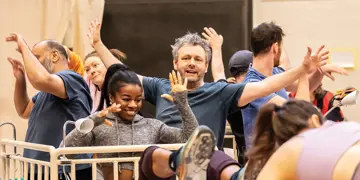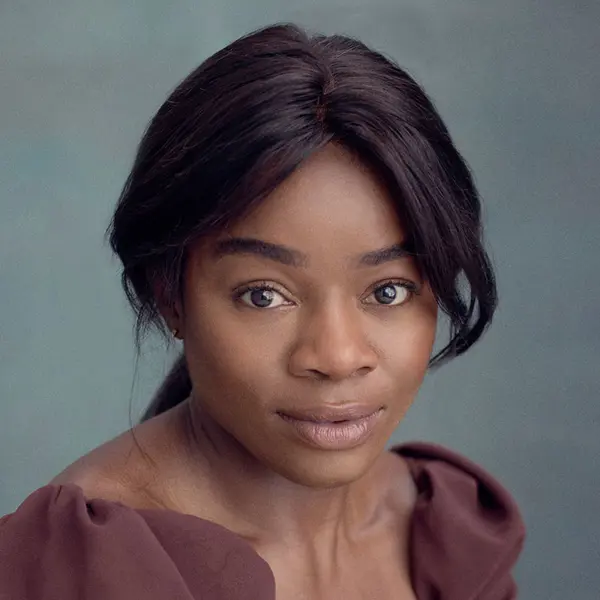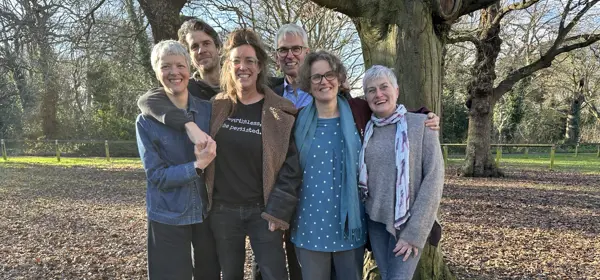Nye and then
Nye and then
For junior doctor Sara Otung, the chance to act in a National Theatre retelling of the life of Nye Bevan has reminded her of the wonder and fragility of the NHS.
When Sara Otung was auditioning for Nye, which opens at the National Theatre in London this month, the script moved her to tears.
Learning what it took for Aneurin ‘Nye’ Bevan to establish a National Health Service was stirring – but realising what is at stake today, with the current threats to the NHS, made her cry.
For now, her time is taken up with rehearsals: she’s part of the ensemble and understudy for Nurse Ellie and Bevan’s sister Arianwen. But off-stage, Sara is Dr Otung, a senior house officer working in acute medicine. ‘It hit home to me what it took to make the NHS,’ says Dr Otung. ‘Is this also what it takes to keep it?’
Tim Price’s new play visits Bevan (played by Michael Sheen) in hospital in 1960, towards the end of his life, as morphine-induced dreams interweave with memories.
Nye shows the fierce resistance Bevan’s National Health Service Bill faced, but it also portrays the steely determination of a man who left school at 13 to work in the local mine and who pushed through the ranks of trade unionism and politics to create a health service ‘free at the point of need’.
It hit home to me what it took to make the NHS.
Dr Otung
Mr Price wants to remind today’s audience why Bevan fought so doggedly to exploit a particular moment and the wartime belief that collective action could ‘solve our big problems’.
‘Pre-1948, you had one GP covering 18,000 patients, and women’s healthcare didn’t really exist because they weren’t covered by the [workers’] insurance panels,’ he says. ‘If you were a woman or child or elderly [and you were sick], you lived in chronic pain.’ Four of Bevan’s nine siblings died in childhood; his father died of miners’ ‘black lung’ (pneumoconiosis).
‘Those with a living memory of what life was like without the NHS are increasingly no longer here,’ adds Mr Price. ‘The NHS is the reason we have this concept of British fairness. This idea that, in the eyes of health, everyone was equal was radical. It’s an argument we have to keep making: it’s permanently under attack.’
In England and Wales, deaths from infectious diseases such as tuberculosis fell sharply in the first 10 years of the NHS; infant mortality (under one year) fell by a third.
Political failings
Dr Otung has paused her medical training to be part of Nye, but has enjoyed impromptu consultations with director Rufus Norris on protocols such as breaking bad news; Cardiff intensivist Matt Morgan is the official medical adviser for the play.
She remains passionate about the NHS. Like Bevan and Mr Price, she grew up in the Welsh valleys and did not have a privileged upbringing.
As a junior doctor in Cardiff, Dr Otung quickly learnt that political decisions affect practice on the ward, especially during COVID. She accepted the rapid rota shifts, the fact she could not see loved ones. But she struggled with the feeling that policymakers were not protecting health workers – or patients.
She remembers vividly the day personal protective equipment guidance changed and masks were downgraded.
‘I remember listening to a patient’s chest who I was sure had COVID and was coughing and I could feel the droplets going through my mask and thinking: This is not safe. My friend worked in a nursing home and they lost many of their clients.’
‘Us and them’
But even pre-pandemic, she realised that mounting systemic pressures threatened the workforce’s wellbeing.
As a foundation year 1, she had cared for one patient for three months only to see them die of a cardiac arrest; despite performing CPR, she could not save them. Dr Otung was asked if she was OK and said ‘yes’ because the ward was understaffed and there were other patients still waiting to be seen.
‘I remember not being able to close their eyes when they passed away and how much that bothered me. I was the one who told the family that their loved one had died. It was the first time I had lost a patient in that way. I couldn’t stop washing my hands.’
It saddens Dr Otung that politics around pay have driven a wedge between healthcare workers and the public. ‘I hope we find a way back from this “us and them”. I need my nurse and my nurse needs me. If my nurse is telling me they’re drowning with their working conditions, I need to help them so they can help me.’
Working on Nye has taught her that the NHS needs champions outside its workforce, too.
‘You can’t save the NHS by staying late every shift, burning yourself out. The NHS is a political institution. We need a strong will, people like Bevan, to figure out how to make it work. Knowing how you got here has a big impact on how you move forward. The NHS is still needed, still possible. We can afford what we choose to afford.’
- Until September 2024, resident doctors were referred to as ‘junior doctors’ by the BMA. Articles written prior to this date reflect the terminology then in use
Nye runs at the Olivier in London 24 February to 11 May, then at the Wales Millennium Centre in Cardiff 18 May to 1 June. A National Theatre Live broadcast on 23 April will bring Nye to cinemas across the UK.




